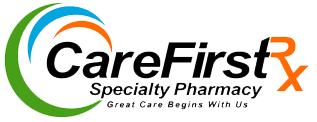Intranasal Glutathione
Intranasal Glutathione
What is Glutathione?
Chances are glutathione is not a medication that you think of for disease management, so what is it and what is its role?
Glutathione (GSH) is a molecule that is made by the body and consists of the amino acids: glycine, glutamate, and cysteine that all help to support the immune system. GSH is an antioxidant which means that it helps prevent cell damage by detoxifying harmful substances in the body. As we age, the levels of naturally occurring GSH drops, however, in certain disease states the levels drop occurs quicker than normal. Therefore, oftentimes supplementation is sought after in those disease states.
Why Is Glutathione Depletion Harmful?
GSH deficiency is associated with a number of central nervous system diseases such as Multiple Sclerosis, Autism, Bipolar disease, Alzheimer’s, and Parkinson’s disease. Specifically, in Parkinson’s disease (PD) a drop in GSH is often one of the first signs of the development of disease due to the fact that an absence of the antioxidant causes nerve damage, cell death, and oxidative stress. Through innovative research, scientists have been testing the use of GSH in Parkinson’s disease. However, the chemical composition of GSH does not allow it to be taken orally for central nervous system diseases because little to none crosses the blood-brain barrier. Therefore, an innovative dosage form needed to be tested.
In a study done in 15 patients with PD, 200 mg of GSH was given intranasally and showed that GSH levels did not only raise, but the levels remained high even 1 hour after administration. This study showed that in order for GSH to reach its target tissues, the intranasal spray is an effective and non-invasive approach.
What are some side effects that I should be aware of?
70 people who received GSH prescriptions from a compounding pharmacy took a survey to evaluate the health benefits, adverse effects, and overall tolerability of intranasal GSH. The survey found that 78.8% of patients had an overall positive experience, 12% had adverse effects, and 86% of patients found the nasal spray to be easy to use. Some adverse effects reported were irritation of nasal passages, headaches, and a bloody nose.
How can I receive intranasal glutathione?
Not all glutathione is not created equally, therefore, a specialty compounding pharmacy will be able to give you a pharmaceutical-grade product. After discussing this treatment with your doctor, the pharmacy can work with your doctor to ensure a customized dose for your regimen.
References
- Mischley LK, Conley, KE, Shankland EG et al. Central nervous system uptake of intranasal glutathione in Parkinson’s disease. NPJ Parkinsons Dis. 2016; 2: 16002.
- Mischley LK, Vespignani MF, Finnell JS. Safety Survey of Intranasal Glutathione. J Altern Complement Med. 2013 May; 19(5): 459–463.
- Smeyne M, Smeyne RJ. Glutathione Metabolism and Parkinson’s Disease Free Radic Biol Med. 2013 Sep; 62: 13–25.



Comments